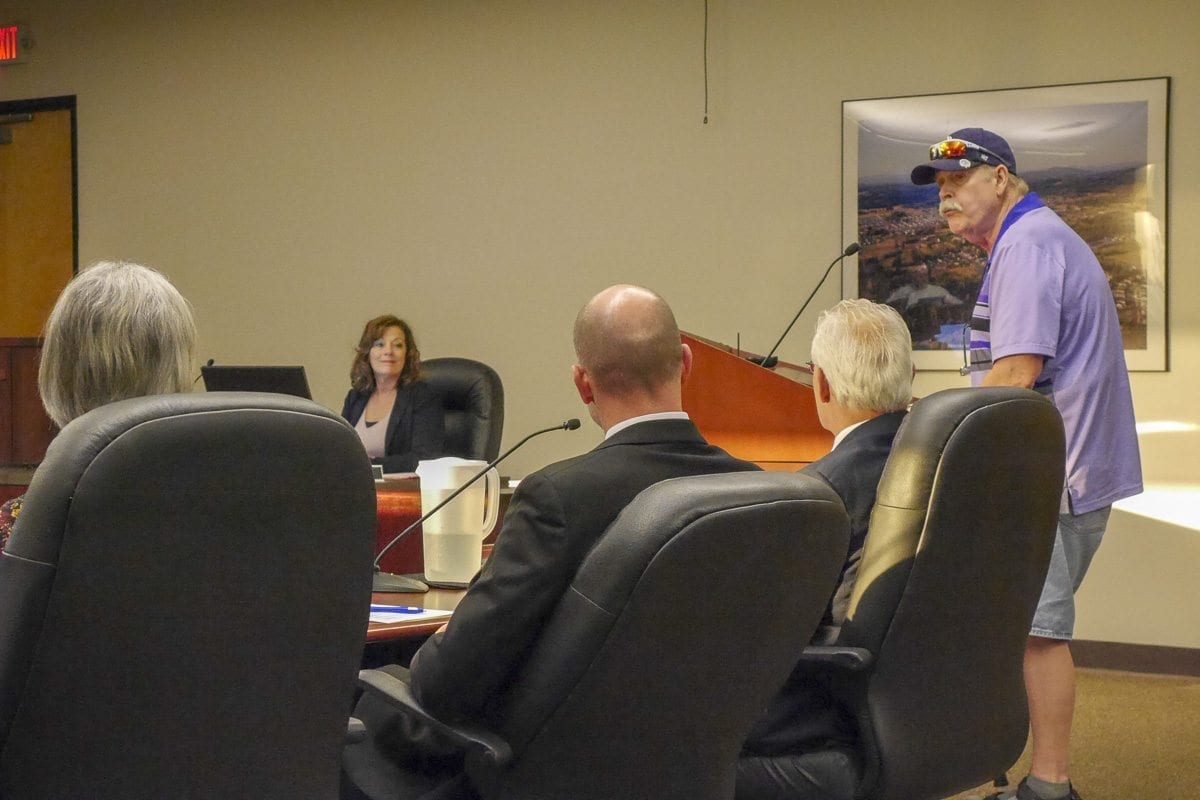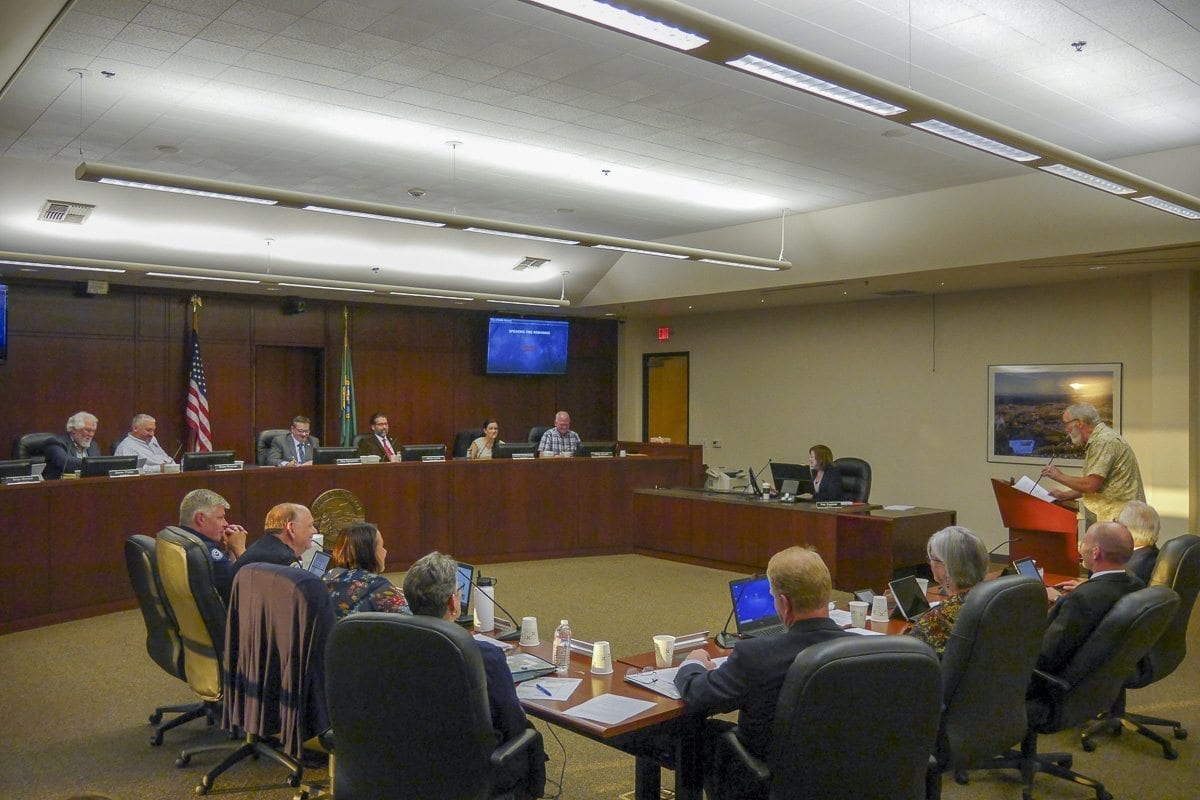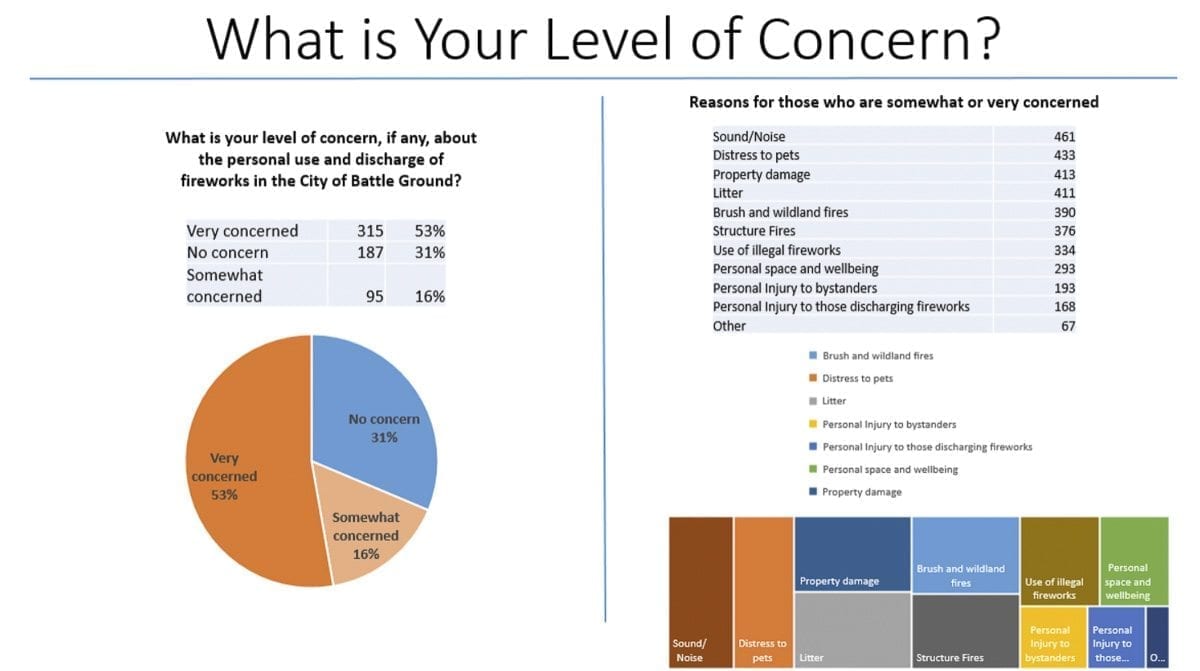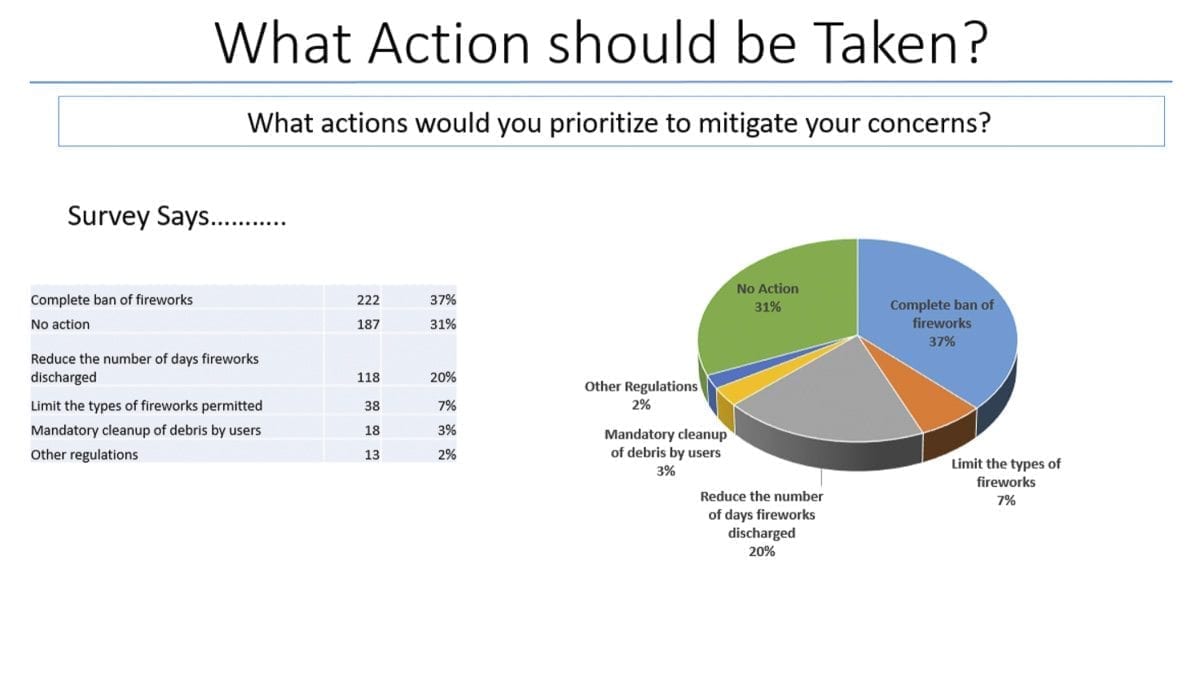Fireworks could be sold from July 1-4, and used on July 3-4, down from the current eight days they can both be sold and used.
BATTLE GROUND — The city of Battle Ground is a step closer to implementing new restrictions on fireworks use. After hearing from more than 700 people through an online survey, and close to a dozen at a public hearing on Monday night, the council will vote on an ordinance next week that would limit the number of days fireworks can be sold and used in the city.

Battle Ground is currently one of 77 jurisdictions in Washington, out of 266 total, that does not impose any restrictions on fireworks sales and use beyond those in state law. That means fireworks can currently be sold and used from June 28 to July 5.
“Eight days of window-rattling explosions in quiet neighborhoods is not a celebration of anything to most of us,” said Battle Ground resident Tim Gaughan, who spoke in favor of limiting the fireworks celebrations to the Fourth of July.
In the online survey conducted by the city, 69 percent of the 764 who responded said they were either very concerned or somewhat concerned by fireworks use. Sixty percent of those who responded also said they don’t regularly buy or use fireworks on the Fourth. Noise complaints were the biggest area of concern, with pet problems, property damage, litter and fire danger also high on the list.
Gary Sutta told the council he’s lived in six different states. “This is way beyond anything I’ve ever experienced,” he said, adding that last year his wife spent the holiday away at her son’s house outside of the city because the noise was so unbearable for them.
Council member Steven Phelps said he also has spent time in the midwest, the south, and lived in Las Vegas. “There is no place like this in the United States, that I’m aware of, that allows us to do this much … what I would call damage … to the sound barrier and all the stuff that’s going on,” he said.

“Our house was one of the houses that was hit by the tornado,” said resident Carolyn Long, “so if you can imagine on the Fourth of July it’s like we have a constant tornado spinning, and spinning, and spinning,” she said, “the noise, the concussion, my dog is rendered helpless. I’m rendered helpless because I have to work the day before and the day after the Fourth of July. I can’t sleep. I love my neighbors, but I find myself filled with anger and resentment and anxiety.”
Of the four people who spoke in favor of leaving fireworks alone, several had a religious perspective. Two pastors talked about how the sale of fireworks help fund several of their programs, as did the head of the Battle Ground Rose Princess court who were honored earlier in the evening. But Jim Cook fired back at those arguments.
“Charities should not abuse other people’s rights for their own gain,” he said. “They should not help some people at the expense of, and by creating harm to other people, by the use of fireworks. It doesn’t make sense. There are many, many other ways to raise money.”
Still others, such as John Young, support the tradition of fireworks as not only an American right, but one that harkens back to the country’s religious roots.
“In the Pledge of Allegiance we say that we’re under God, and in the Bible when there was a major event in the life of His people, God told them to celebrate it, and He set aside times of festivals and celebrations,” said Young. “So my point is that this is something that we have been doing for years and years and years, and it is a tradition for our nation to be able to celebrate the independence that we have. A major thing in the life of the people of the United States of America.”

The council members seemed to be split similarly to the crowd, with Shane Bowman concerned that banning certain fireworks, or limiting the number of days they could be used, would actually create more complaints for local police and fire to deal with, and that the mixture of alcohol at some celebrations could create a volatile situation for law enforcement.
“We live in Battle Ground. Our name is Battle. Ground. We celebrate that every Fourth of July,” he said, only half joking.
Chief Bob Richardson agreed that new rules likely would, at least initially, mean added enforcement costs. He and the fire chief both spoke in favor of limiting the days for sales and use, but not banning aerial fireworks at this point.
The council also had the option of passing an ordinance that would allow them to ban fireworks in certain years when the fire danger is deemed to be too high, but the city attorney warned that public meetings laws would make that difficult to do in a timely fashion.
The decision to direct staff to draw up the ordinance that would limit days for sales and usage of fireworks was far from unanimous. Four approved, with three voting against.
“Johnson money does not end up in Chinese smoke, just to be blunt about it,” said council member Philip Johnson. “But we’re a community of free spirits, and I don’t believe it’s this council’s job, if you will, to start outright banning.”

While he voted against moving ahead with limiting days, Johnson indicated he might ultimately be convinced to go along with that, saying that the move likely wouldn’t make anyone happy, “Which is probably the best position we can be in, is that no one’s happy.”
Council member Brian Munson suggested that the issue be sent to voters via a referendum, which would allow for more time to analyze the impact limiting or banning fireworks would have on local charities.
The council will come back next week to vote on the staff recommendations, which would limit fireworks sales to July 1-4, and usage to just to the 3rd and 4th. New Years Eve fireworks would still be on sale starting the 28th of December, with usage only on New Years night.
Should the council approve the new ordinance during their next meeting on May 21, the rules wouldn’t take effect until July 2019, meaning nothing would change this year.




